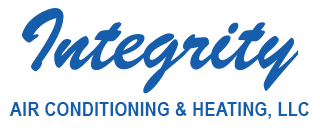
We spend a good majority of our time inside. In reality, the Environmental Protection Agency (EPA) has approximated being indoors comprises 90% of our time. However, the EPA also has found your indoor air can be three to five times more polluted than outdoors.
That’s since our residences are securely sealed to increase energy efficiency. While this is good for your heating and cooling bills, it’s not so great if you’re among the 40% of the population with respiratory allergies.
When outdoors ventilation is limited, pollutants including dust and volatile organic compounds (VOCs) may get stuck. Consequently, these pollutants may aggravate your allergies.
You can enhance your indoor air quality with fresh air and usual dusting and vacuuming. But if you’re still having problems with symptoms during the time you’re at your residence, an air purifier might be able to provide assistance.
While it can’t eliminate pollutants that have gotten trapped in your furnishings or carpet, it might help freshen the air circulating across your house.
And air purification has also been scientifically confirmed to help lower some allergic symptoms, according to the American College of Allergy, Asthma and Immunology. It might also be appropriate if you or a family member has lung trouble, such as emphysema or COPD.
There are two options, a portable air purifier or a whole-home air purifier. We’ll examine the differences so you can figure out what’s correct for your house.
Whole-House Air Purifier vs. Portable Air Purifiers
A portable air purifier is for one room. A whole-house air purifier accompanies your HVAC equipment to purify your complete house. Some kinds can clean by themselves when your home comfort equipment isn’t running.
What’s the Best Air Purifier for Allergies?
Seek an option with a High Efficiency Particulate Air (HEPA) filter. HEPA filters are installed in hospitals and offer the best filtration you can buy, as they eliminate 99.97% of particles in the air.
HEPA filters are even more useful when combined with an ultraviolet (UV) germicidal light. This mighty blend can eliminate dust, dander, pollen and mold, all of which are common allergens. For the best in air purification, evaluate a system that also has a carbon-based filter to reduce household vapors.
Avoid buying an air purifier that makes ozone, which is the top element in smog. The EPA warns ozone may worsen respiratory issues, even when emitted at low settings.
The Allergy and Asthma Foundation of America has made a checklist of questions to ask when purchasing an air purifier.
- What can this purifier take out from the air? What doesn’t it take out?
- What’s its clean air delivery rate? (A bigger figure means air will be freshened faster.)
- How often does the filter or UV bulb need to be switched]? Can I complete that without help?
- How much do replacement filters or bulbs cost?
How to Reduce Seasonal Allergy Symptoms
Want to have the {top|most excellent|best] outcome from your new air purification unit? The Mayo Clinic recommends taking other steps to reduce your exposure to things that can trigger seasonal allergies.
- Stay inside and keep windows and doors shut when pollen counts are heightened.
- Have someone else mow the lawn or pull weeds, since these tasks can irritate symptoms. If you must do these jobs yourself, you might want to consider trying a pollen mask. You should also rinse off without delay and put on new clothes once you’re finished.
- Avoid hanging laundry outdoors.
- Use the AC while at home or while driving. Consider installing a high efficiency air filter in your residence’s HVAC system.
- Equalize your house’s humidity percentage with a whole-house dehumidifier.
- Hardwood, tile or linoleum are the ideal flooring materials for lowering indoor allergens. If your house has carpet, use a HEPA filter on your vacuum cleaner.
Let Our Specialists Manage Your Indoor Air Quality Requirements
Prepared to move forward with adding a whole-house air purifier? Give our professionals a call at 602-971-0567 or contact us online to schedule an appointment. We’ll help you locate the right unit for your house and budget.


